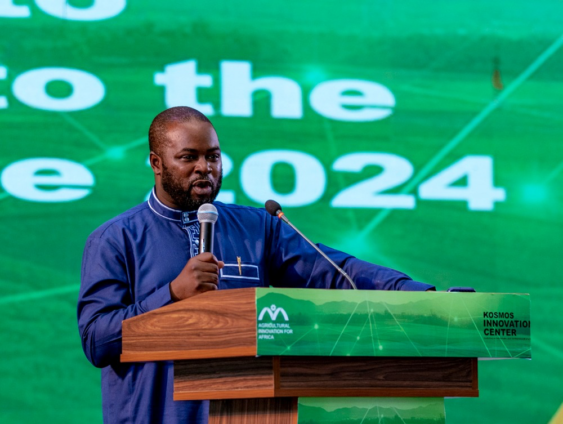The National Project Coordinator for the International Trade Centre's Netherlands Trust Fund 5 Programme, has called on stakeholders in Ghana’s agricultural value chain to prepare for the integration of traceability systems within the sector.
Isaac Newton Acquah stated that implementing traceability is crucial to maintaining trade relationships with major agricultural export partners.
"The European Union is a major export partner for Ghana, and with new laws coming up in 2025 that require tracing any produce we’re exporting, we need to be prepared,” Acquah said.
Speaking at the second Agricultural Innovation for Africa (AIA) Conference, organised by the Kosmos Innovation Centre and its partners, Acquah highlighted the significant contribution of agriculture to Ghana’s Gross Domestic Product (GDP) and stressed the importance of adapting to evolving export market trends to ensure sustained benefits from the nation’s agricultural exports.
While acknowledging the challenges facing Ghana’s agricultural sector, Acquah noted that several industry players are tackling these issues.
“We have 99 problems, maybe more, but there are companies like Grow for Me, Sabon Sake, and Farmerline addressing access to finance, carbon sequestration, and traceability, respectively,” he said.

He noted the need to transform Ghana into a major exporter of agricultural produce.
“Our goal should be to transition from dependence on food imports to becoming a leading exporter. We need to generate surplus produce that can be exported for additional revenue,” he asserted.
Acquah also encouraged Ghanaian youth to take an active role in agriculture to help achieve national food security.
"Agriculture offers numerous opportunities for young people. You don’t need a background in agriculture to make an impact. Ultimately, it’s not just about job creation but ensuring food security," he added.
The AIA Conference, held under the theme “Empowering Youth Startups and Agri-MSMEs in Africa: Addressing Climate Change, Innovative Financing, Market Efficiency, and Gender Mainstreaming for Sustainable Food Systems,” brought together over 500 participants both virtually and in person, featuring discussions on innovative financing, market efficiency, and a workshop on traceability.
Latest Stories
-
Why Trump has invited five African leaders to the White House
46 minutes -
Trump threatens Brazil with 50% tariff and demands Bolsonaro’s trial end
57 minutes -
Linda Yaccarino departs as boss of Musk’s X
1 hour -
Juliana Storey re-elected President of Rugby League Federation Ghana
1 hour -
Three 18-year-olds jailed for 10 years each after brutal Kumasi robbery
2 hours -
US$367m IMF cash credited to BoG account.
2 hours -
EY Ghana launches 25th anniversary celebrations, reaffirms commitment to innovation, talent development
2 hours -
Mahama, Baffoe-Bonnie to grace GJA swearing-in ceremony
2 hours -
National Security yet to make an arrest after seizure of 12 gold-filled containers – Muntaka
3 hours -
Gov’t breaks silence on foreign queer couple’s ‘desecration’ of Independence Square
3 hours -
PIAC accountability oversight weakens with amendment of PRMA
3 hours -
CBG board must protect taxpayers’ money – Finance Minister cautions
4 hours -
Finance Minister congratulates new CBG board, reaffirms support for bank recapitalisation
4 hours -
Mahama sacks Ambulance Service CEO, Dr. Nuhu Zakaria
4 hours -
No room for excessive salaries in State-Owned Enterprises – Finance Minister warns CBG board
4 hours

